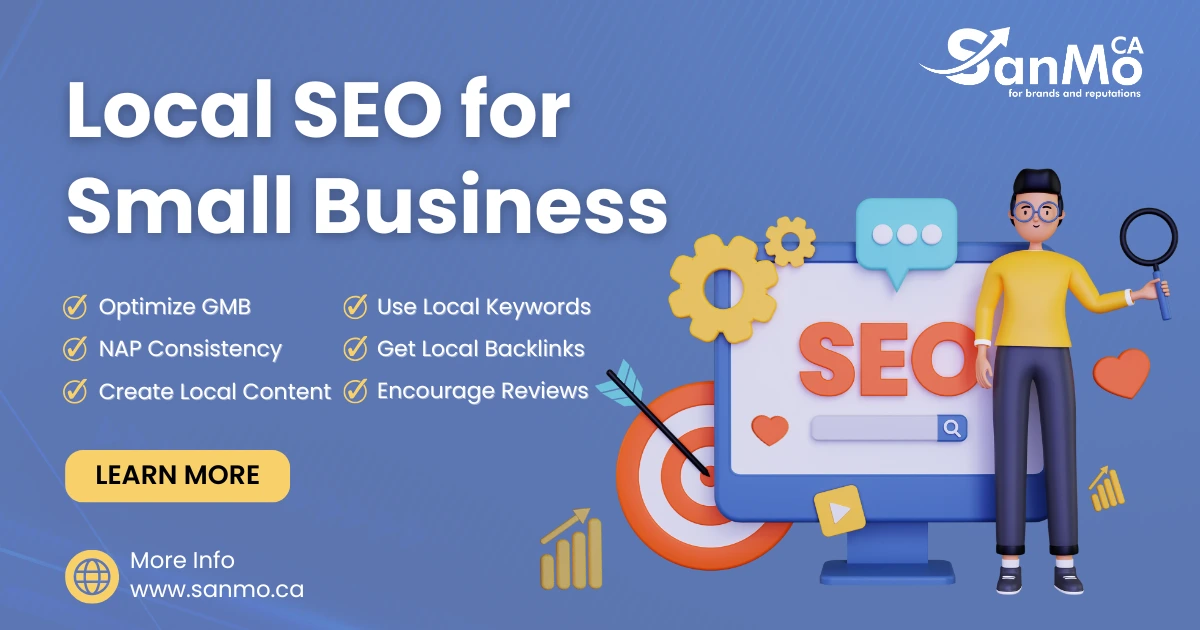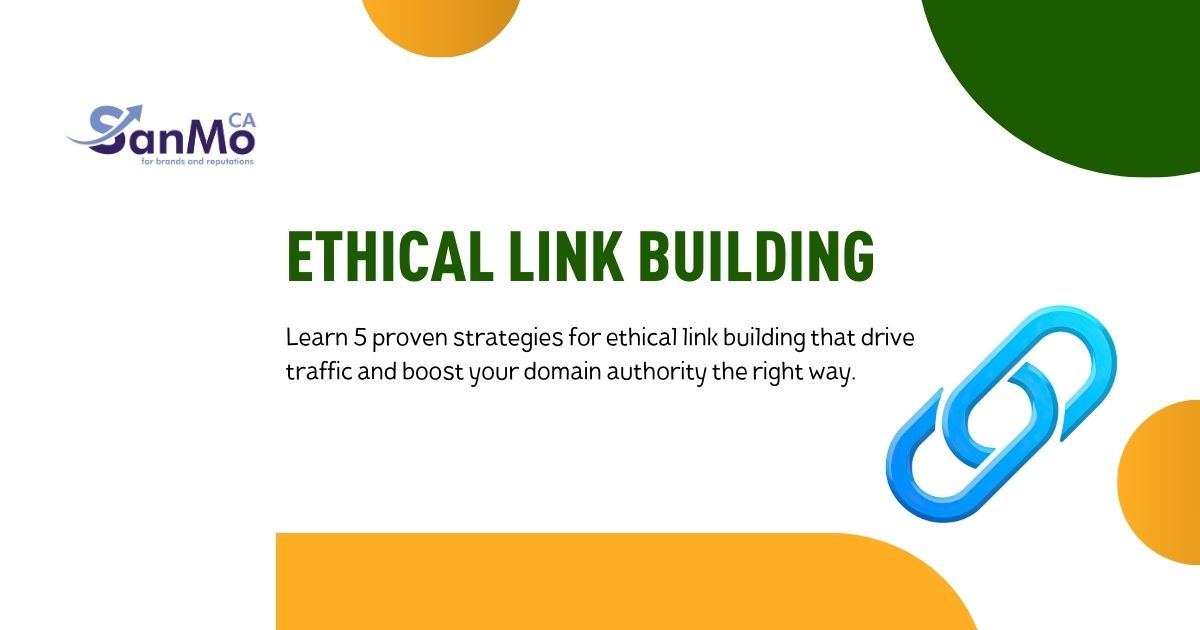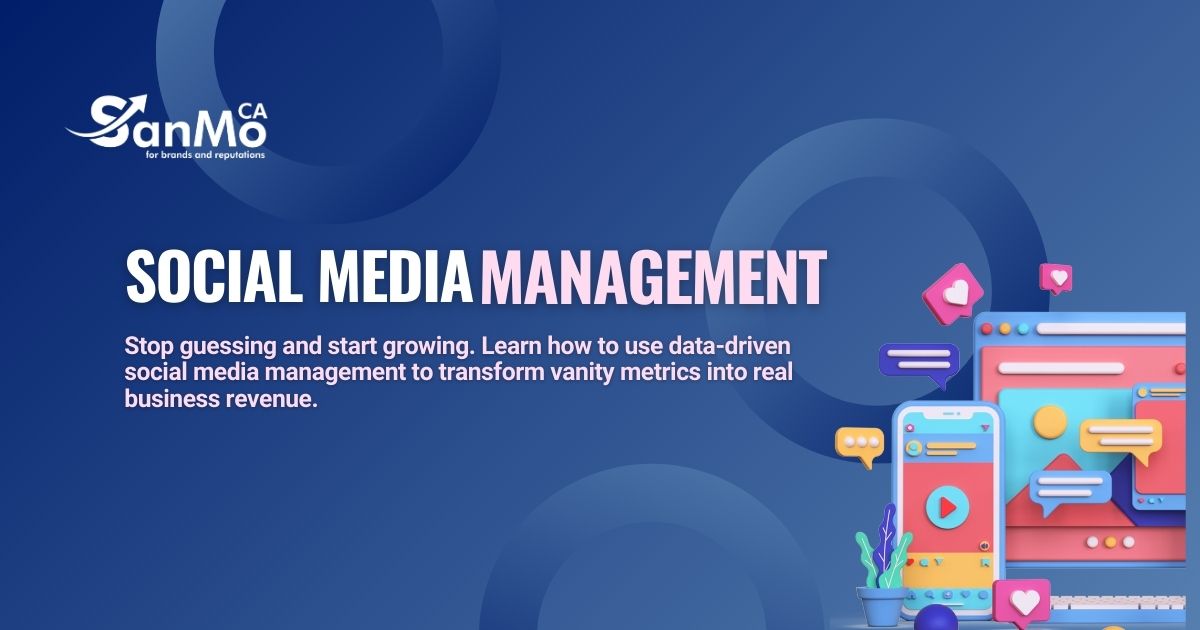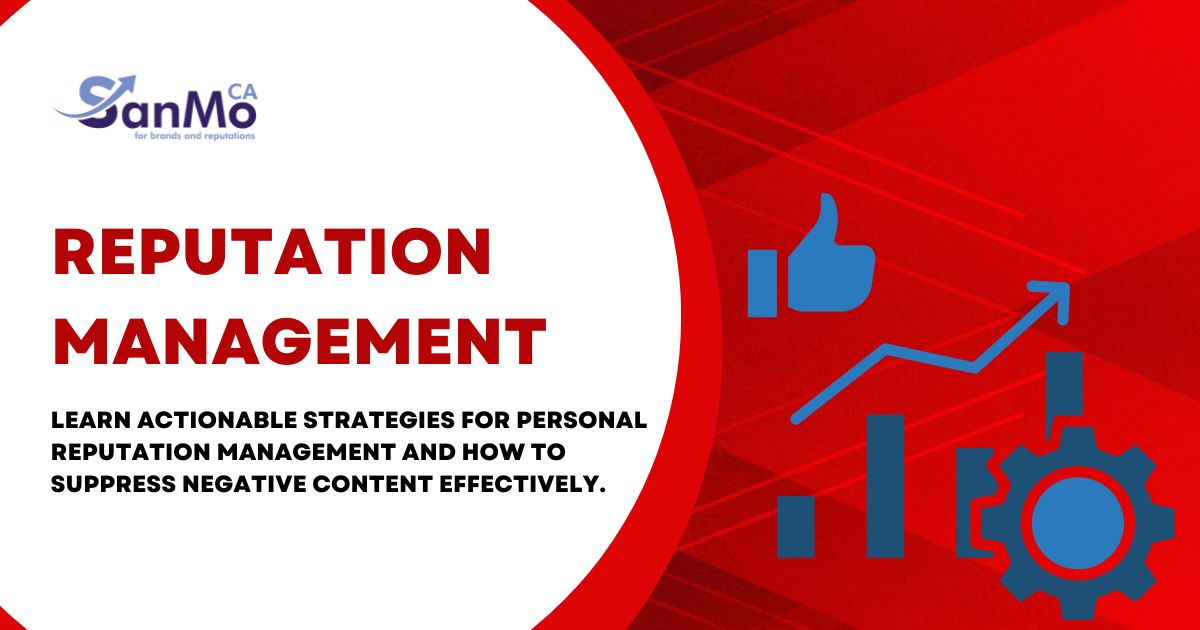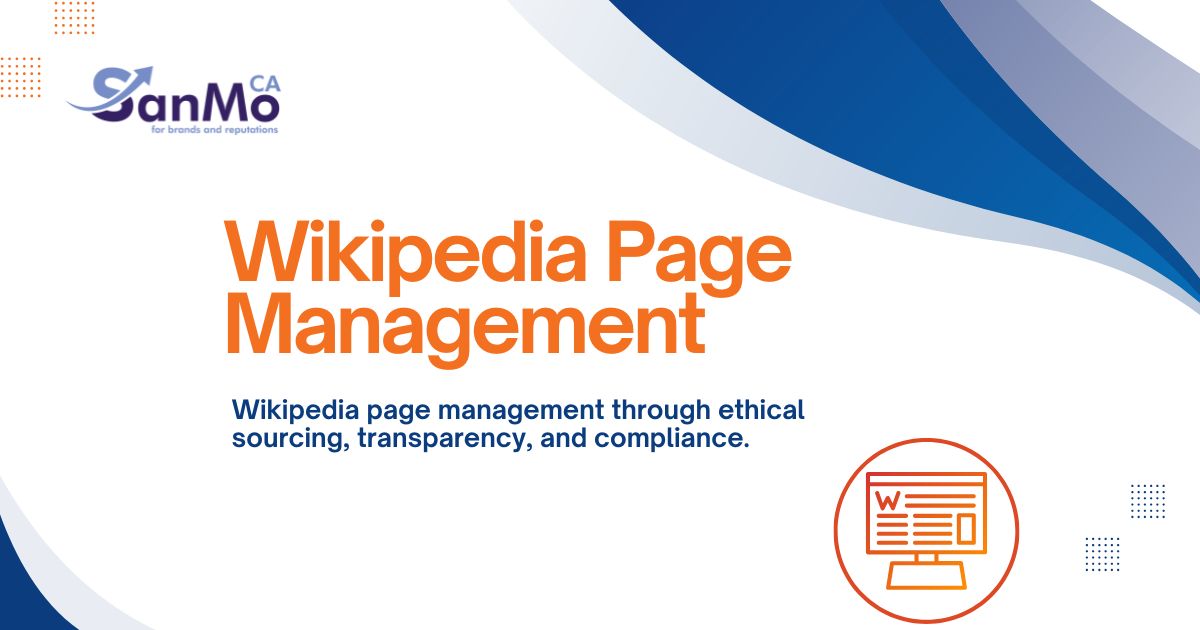In an increasingly competitive digital landscape, local SEO is a vital tool for small businesses looking to attract nearby customers. Sanmo Digital understands how critical it is for Canadian businesses to establish a strong online presence in their local market. Here, we’ll explore some effective, actionable local SEO strategies to help small businesses like yours connect with potential customers and outshine competitors.
Optimize Your Google Business Profile for Canadian Visibility
The Google Business Profile (GBP) is a fundamental part of local SEO. It enables your company to appear on Google Maps and in local search results, making it simple for local clients to locate you.
Provide Accurate Information: Ensure all information, including your business name, address, phone number (NAP), website, and hours of operation, is accurate and consistent across all online platforms. Any inconsistencies can confuse both customers and search engines, potentially harming your ranking.
- Select Relevant Categories: Carefully select both primary and secondary categories that best reflect your business. This selection helps Google understand your services and makes it easier for local customers to find what they need.
- Use Quality Photos and Videos: Showcase your business by adding high-quality images and videos to your profile. Businesses with visuals receive more engagement, including requests for directions and visits to their websites.
- Encourage Customer Reviews: Reviews significantly impact your local ranking and build trust with potential customers. Encourage happy clients to leave positive reviews, and make sure to respond to each one professionally. This interaction demonstrates your commitment to customer satisfaction.
Focus on Local Keywords Relevant to Your Market
Selecting the right local keywords is key to being found by potential customers searching for businesses like yours in your area.
- Conduct Keyword Research with a Local Focus: Tools like Google Keyword Planner, Ahrefs, and SEMrush can help identify popular search terms in your area. Include keywords that include location modifiers (like “Toronto web design” or “Vancouver digital marketing”) or terms commonly associated with your services.
- Use Local Keywords Strategically: Incorporate local keywords in your website’s title tags, meta descriptions, headers, and content. Avoid keyword stuffing; instead, write naturally and ensure your content reads smoothly.
- Create Content Targeting Local Topics: Consider writing blog posts that speak directly to the needs or interests of your local community. For example, if you’re a web design company, you could write an article about “Top Web Design Trends for Toronto Businesses” or “How Vancouver Companies Can Leverage Local SEO.”
Build Local Citations and Directory Listings
Citations—mentions of your business’s name, address, and phone number (NAP) on various websites—can significantly boost your SEO by reinforcing your business’s legitimacy.
- Claim Listings in High-Authority Directories: Submit your business information to reputable Canadian directories, such as Yellow Pages Canada, Yelp Canada, and 411.ca. Be sure the information is consistent with what appears on your Google Business Profile.
- List in Industry-Specific Directories: If your industry has specific directories (e.g., Clutch for digital agencies or Houzz for home improvement), it’s worth being listed in them to enhance your local visibility in sector-specific searches.
- Regularly Monitor for Accuracy: Duplicate or inconsistent listings can hurt your local SEO efforts. Regularly audit your citations to ensure accuracy and eliminate any duplicates.
Leverage Local Backlinks for Better Authority
Backlinks from local sources signal to search engines that your business is relevant to your geographic area. They also drive traffic from other sites, increasing your visibility and authority.
- Engage with Local Influencers: Partner with local bloggers, influencers, or organizations to create content that includes links to your site. These partnerships can build community relationships while increasing your authority with search engines.
- Sponsor or Participate in Local Events: Many community organizations and events recognize sponsors on their websites, often linking back to the business’s website. Supporting local events not only improves your SEO but also enhances your brand’s reputation in the community.
- Submit to Local Press Outlets: If your business hosts an event or reaches a milestone, submitting press releases to local media outlets can garner coverage and backlinks to your website, which improve your SEO authority.
Optimize Your Site for Mobile and Voice Searches
With the growing use of mobile devices and voice searches, your website must be optimized to accommodate these trends.
- Ensure Mobile-Friendliness: Many local searches are conducted on mobile devices. A mobile-friendly website is essential to ensure users have a positive experience on your site. Google’s Mobile-Friendly Test can help you evaluate your site’s mobile optimization.
- Optimize for Voice Search: Natural language and longer, conversational phrases are frequently used in voice search. Make sure your website includes content with question-based keywords, like “Where can I find a web designer in Vancouver?”
- Improve Page Load Speed: A slow website frustrates users and can drive them away. Tools like Google PageSpeed Insights can help identify speed-related issues. Consider optimizing images, reducing server response time, and compressing code to enhance performance.
Frequently Asked Questions
- How long does it take to see results with local SEO?
Local SEO can take some time, especially if you’re competing in a busy market. Typically, you’ll start seeing improvements in about 3 to 6 months, depending on how competitive your industry and location are. - Can I do local SEO by myself, or should I hire a professional?
While many business owners manage their local SEO effectively with the right tools and knowledge, it can be time-consuming. Partnering with professionals like Sanmo Digital can ensure a well-rounded and strategic approach, giving you more time to focus on running your business. - Are reviews necessary for my Google Business Profile?
Yes, reviews are essential. They not only influence your ranking in local searches but also build credibility with potential customers. Responding to both positive and negative reviews also shows that you value feedback and are dedicated to improving your services. - How important is mobile optimization for local SEO?
Mobile optimization is crucial, as a significant portion of local searches happen on mobile devices. A mobile-friendly website ensures a smooth user experience, which in turn can improve your ranking in search results. - Should I focus on paid ads as part of my local SEO strategy?
While paid ads can support your SEO efforts, organic local SEO can also yield impressive results without requiring an additional budget. However, paid ads might be worth considering if you’re in a highly competitive market. - How can I encourage more customers to leave reviews?
Make it simple for customers by sending follow-up emails or SMS with a direct link to your review page. Thanking customers for their feedback and occasionally asking in person can also be effective.

